Keep the action slow, focus on preferences:
He would have preferred — he muttered to himself, before repeating it aloud to Lydia — a simple dish, something botanical : vegetables, greens… and so he continued, spouting synonyms in triplicate until he made of simplicity a conundrum. Then, ignoring his interlocutor’s indifference at this attempt to impose on their quotidian yet another one of his literary manias — and resisting the urge to answer the snub with a boast on his palatial refinement — he informed her that he would be dining alone this afternoon. His friends would only arrive the following day, while his gentleman acquaintance might arrive as soon as Thursday afternoon; on which day, in the event he should be alone — and safe, after all — (for there was always the possibility his friend might decline the invitation, or else arrive late, or else leave early), he would then also prefer a simple botanical collation (greens, vegetables), for he always ingested complicated fare when dining out. And, for him, dining out was not unusual.
He saluted Burgess with an expansive wave through the window, and when Max entered, he also saluted him, although he refrained from leaning over to do so. Nonetheless, after uttering some preliminary endearments that would have been unintelligible to Max even had he been human, his master stooped to pet him — a complicated act, from his altitude, especially given that his characteristically slight but by no means willowy frame had lately expanded to the dimensions of a prosperous entrepreneur — at which point, Lydia, with the finesse of an accomplished supporting actress, seized the opportunity to make a discreet if nonetheless theatrical exit. He straightened back up. Now steady, and with his eyes closed, he recalled again the scent of Lydia’s breath — perfection and sherry — and judged it less offensive and noisome than that of George.
To be continued?
“Dos de Nosotros” gives an account of Nurlihrt’s reflections on adultery:
He doesn’t really care, he insists, but as with any issue where what’s really going on and how it’s reported vary depending on their respective subjects and objects — when we criticize others, it’s called invective; when others criticize us, it’s called abuse [Kingsmill] — adultery is a question best examined, dispassionately, with neither pleasure nor circumspection, as part of a larger phenomenon, in this case called — without bandying words, and sans musique —jealousy.
He doesn’t really care, he insists, and insists I pay such close attention that I feel remiss in not taking notes as he tells me about Elena’s imperturbability yesterday after he took her hands in his and remarked, “Cold hands, warm heart! Is there anyone in particular on your mind?”
He doesn’t care. He looks at me, idly curious — putting on a mask of indifference to shield himself from the pain he knows he causes: “And what about Sabatani, Dos,” I asked, “after the storm, when I got back the day before — remember? You know, I couldn’t help but think of the enduring and astonishing validity of what Powell said about women, that their greatest show of fidelity was to start fights with their lovers.”
The nearest some women get to being faithful to their husbands is being disagreeable to their lovers .
A.P.
Terror that X-Positions might end up looking like those hated novels 62: A Model Kit or Revol’s Mutaciones bruscas (Sudden Changes).
Both of which I read so fondly when I was at the cusp of adolescence. But it does resemble them, sad to say. We can’t escape our early influences — there’s my attempt at rationalization. And more: there’s no denying the pressure exerted upon us at that most crucial moment — at the threshold between childhood and adolescence — by our reading. Just plain reading. The burden of those early devotions — like stamp collecting. And, even worse, the fact that your writing forever advertises every last baffling and muddy trace left behind by that confessional devotion: a sort of damper placed on your entire life, a humiliating expulsion of those errors you accumulated in the name of experience. To quote Lope de Vega’s fundamental, eternal, infrangible enjambment: “That I have loved at other times / I cannot deny.”
1971. Girri / El Carapálida: Diary of a Book. In the letter, ambiguous forest
We return to James
Lydia — perhaps because she had a genuine faith in his judgment, or because she was being indifferently compliant, or because something had alerted her to the exigencies of the day — had left before the end of his oration. It was startling, a miracle of indecisiveness. Even his questions were somewhat vacuous, empty, so that they sounded like irresolute twangs redoubling in an echo chamber. But it mattered not in those instances how obvious those empty spaces were, how provisional, how inane the suspense they induced in the hearer, for they reflected his own unwholesome diet, his discipline of misgiving, his false modesty.
In the study with Max, his first thought was that he need not wait for George’s traps to fulfill their function, that Max could catch the rat on his own … And he recalled an anecdote of Doctor Johnson’s — or only half-recalled, rather, according to his customary mode of recollecting—: It was strange, uncanny really, especially for it being a piece of prose, and more so because he managed to remember all the subtleties of accent and rhythm, the variable cadences of the piece, and yet none of its sense. No, it wasn’t entirely strange: it was a confirmation of what he had believed his entire life, without realizing it, and certainly without regard for metrics or prosody; something that was difficult to explain without exhaustive preamble, for the belief required much correction and refinement over the years, during which time it grew like the spider’s web that eventually ensnared him, disrupted his life. Life, with its senseless task. To grumble every day and night scratching one’s head in an effort to apprehend what makes as much sense, superficially, as a black dog barking in the street. Because the substance of an event was never fully captured in the considered act of describing or defining as much as by a fleeting grammatical discharge, which reveals as much as can be revealed respecting an event’s fugacity or fixity, above all that mobile quality, that acoustic quality, imitated again and again, although the meaning was lost, or was relegated to the limbo of one’s memory.
Miracle of verbal effusiveness and emotive inhibition that so irritated Mailer (and, I suppose, Gorey too), “The Pupil” begins as follows: “The poor young man hesitated and procrastinated …”
Let’s see if we can finish it today:
In the afternoon he dictated all he could to Miss Weld, everything he only half-recalled, with inadequate words, words like fading echoes and fragments of that immense inexpressible reality — intimations, as the ruffle of a curtain after closing on a scene — and worse even, of the ever diminishing recollection of what was said and of what transpired. Nevertheless, when Miss Weld had finally retired for the day, her hand stiff as usual, the late afternoon etched a sunset so false, so painterly, only a mawkish poet or adolescent (and perhaps the two are kindred) would, in attempting to exalt the scene, succeed in making it the more factitious. Although he was himself infected, he dared to admit to himself that the story he wanted to tell was in fact different to the one he dictated, and that his impulsive nature was an impediment to his telling it, that this was what led him to hide it beneath a bushel of vagueness, of imprecision, and that he searched in his pockets and found, to his dismay, only a dead mouse, a cork, and a fragment of eggshell. Was it his stifled imagination or someone else that told him this?
Читать дальше












